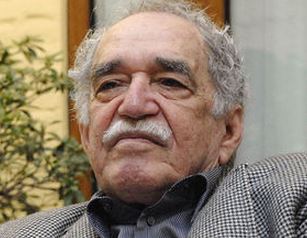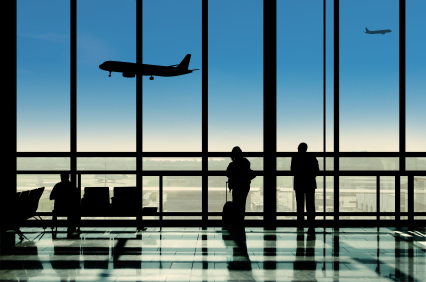[vc_row][vc_column width=”1/2″][vc_column_text]
Colombia
Colombia was the 38th largest economy in the world by nominal GDP in 2018. Its GDP per capita was $6,651 USD. It is rich in natural resources, ranking 25th in terms of natural capital as measured by the World Bank in 2014. It was ranked 70th in the World Bank's Human Capital Index and 53rd in the Economic Complexity Index in 2017. It is a member of the regional trading group Mercosur. Services was the largest economic sector in 2018 (57.8 percent of GDP), followed by manufacturing (11.3 percent), and agriculture (6.3 percent). In 2017, the largest export sectors were minerals (47.54 percent), agriculture (16.82 percent), services (15.76 percent), and chemicals (6.6 percent). The largest individual exports were crude oil (27.7 percent), coal (14.99 percent), travel and tourism (9.1 percent), and coffee (4.95 percent). Its largest export partners were the USA (28.34 percent), China (8.24 percent), and Panama (5.76 percent). The largest goods imports were refined petroleum (7.02 percent), cars (4.18 percent), and transmission apparatus for radio, telephones, and television (4.11 percent). Simon Bolivar declared independence from Spain in 1819 following a revolt that began in 1810. The late 19th century saw the development of the coffee industry which boomed from after the "one thousand day civil war" (that led to the independence of Panama) to the 1950s. Low coffee prices in the 1950s and 1960s led to a devaluation of the currency, which spurred industrialisation and import substitution. Oil was discovered in 1918 but was used entirely for domestic consumption until the 1980s. Since then, oil has become the main export. Recently, the government has been promoting exploration and advanced extraction techniques because of a lack of recent discoveries. Between 1946 to 1958, conflict erupted between the followers of the two main political parties, "La Violencia", which disrupted the economy and led to the formation of armed rebel groups. These groups became involved in the drug trade and have long resisted the government. In 1991, constitutional reform brought greater stability along with increased military efforts against the armed groups. Peace was reached with the main rebel group in 2016, FARC, but some factions have retaken arms. Fiscal pressure and a banking crisis in the 1990s led to reforms and increased trade liberalisation in the 1990s and 2000s. As a result new industries emerged during the 2000s and 2010s, e.g. electronics, cars, tourism, and shipbuilding, but oil and coal remain the main exports.
[/vc_column_text][vc_column_text] Its population in 2018 was 49,464,683 [1]
Its population in 2018 was 49,464,683 [1]
 In 2015, 23.56% of its total energy
In 2015, 23.56% of its total energy
consumption was renewable [2]
 In 2021, its GDP grew by 10.56% [2]
In 2021, its GDP grew by 10.56% [2]
 In 2021 it had a negative Current
In 2021 it had a negative Current
Account Balance of US$bn 17.83 [3]
 Its unemployment rate in 2021 was 13.72% [3]
Its unemployment rate in 2021 was 13.72% [3]
 Its Expenditure on R&D (as a percentage of
Its Expenditure on R&D (as a percentage of
GDP) in 2020 was 0.29% [2]
 A Big Mac will set you back the
A Big Mac will set you back the
local equivalent of US$3.73 [4]
What free trade areas or economic unions is it a member of?
Member of the Andean Community (ANDEAN) since 26/05/1969
Other members:
What trade deals are there between Andean Community and other countries and economic unions?
MERCOSUR - CAN free trade area (from 31/12/2003)
[/vc_column_text][vc_column_text]What trade deals are there with other countries and economic unions?
Colombia - Mexico free trade agreement (from 01/01/1995)
Canada - Colombia free trade agreement (from 15/08/2001)
Chile - Colombia free trade agreement (from 08/05/2009)
Colombia - Northern Triangle free trade agreement (from 12/11/2009)
United States - Colombia free trade agreement (from 15/05/2012)
EFTA - Colombia Free Trade Agreement (from 01/10/2014)
Pacific Alliance free trade agreement (from 01/05/2016)
Korea, Republic of - Colombia free trade agreement (from 15/07/2016)
Costa Rica - Columbia free trade agreement (from 01/08/2016)
UK - Andean countries trade agreement (from 01/01/2021)
[/vc_column_text][/vc_column][vc_column width=”1/2″][vc_column_text]World Economic Forum: Chile and Colombia Best in Entrepreneurial Vitality
UN-Backed Project to Help Colombian Farmers Move Away from Illicit Crops Towards Fair Trade Chocolate
World Bank Supports Efforts to Achieve Growth with Equity and to Develop Cities in Colombia
How Much Does Pollution Cost?
Gabriel García Márquez (1927-2014): A Farewell to the Patriarch of Literature
Peter Macnee: IFC Helps Virgin Mobile Find Untapped Demographic
CFI.co Meets Juan Pablo Córdoba Garcés
Thanks for giving us Space, Juan
Hopes and Action for a Secure Colombia
European Commission: Helping SMEs Seize Global Opportunities
Trade with the United Kingdom
Source: UK Office for National Statistics, October 2022.
Contains public sector information licensed under the Open Government Licence v3.0.



























































































